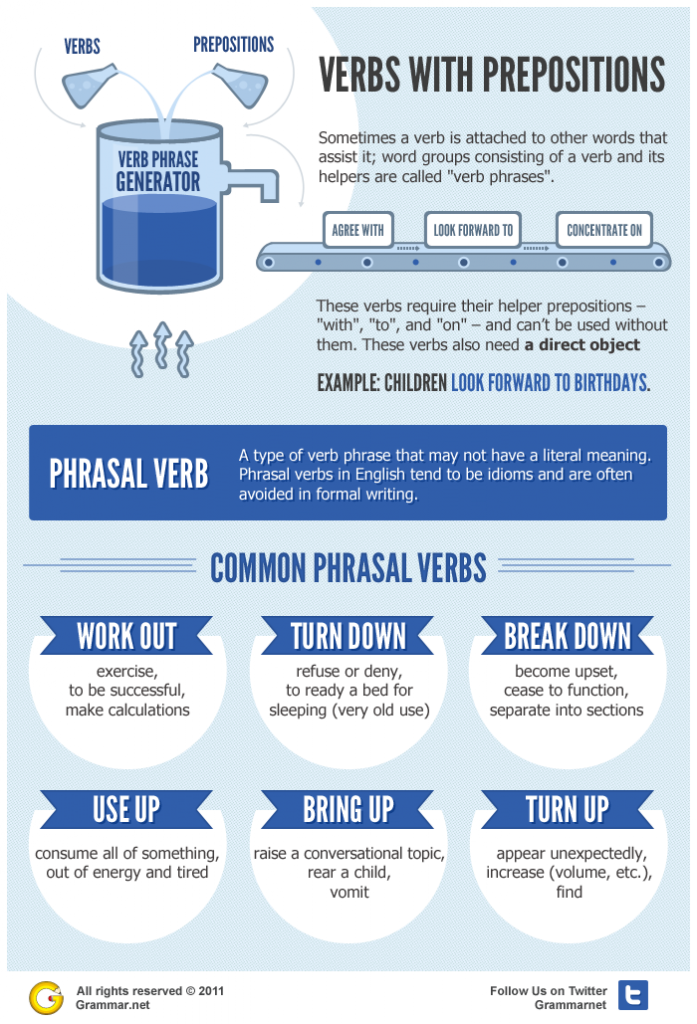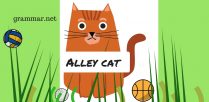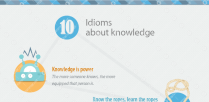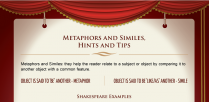Sometimes a verb is attached to other words that assist it; word groups consisting of a verb and its helpers are called “verb phrases”.
To download a high-resolution poster click here.
Embed this image to your site:
Prepositional Phrase
A quick explanation of the prepositional phrase can help in understanding verb phrases.
Prepositions are words that signal the start of a prepositional phrase. “On the fence”, “in the soup”, and “behind the wheel” are all prepositional phrases; the prepositions are “on”, “in”, and “behind”.
Verb Phrase
Verbs with prepositions are similar: “agree with”, “look forward to”, and “concentrate on”. These verbs require their helper prepositions–“with”, “to”, and “on”–and cannot be used without them. These verbs also need a direct object:
“I agree with Frankie.”
“Children look forward to birthdays.”
“Chicken concentrate on insects when they cannot find grain.”
Phrasal Verb
A type of verb phrase is the phrasal verb, which differs from the above examples in that a phrasal verb may not have a literal meaning. Phrasal verbs in English tend to be idioms and can be confusing to those unfamiliar with the language; because of this, they are often avoided in formal writing. These little packets of information can generally be understood when “taken in context”–using clues from the rest of the sentence to discover the phrase’s meaning.
“We ran out of pie, so we gave them cake.”
“After dinner, I put off doing the dishes and watched the game instead.”
“You can get away with not knowing the phrasal verb if you pay close attention to the rest of the sentence.”
In the first sentence, nobody is physically running around in pie; the phrase “ran out” is a popular way to say that the pie is gone. In the second sentence, “instead” gives the reader a hint, and in the last, take the phrase in context with the rest of the sentence.
Common Phrasal Verbs
Work out–exercise, to be successful, make calculations
“Bill wants to work out after lunch.”
“The new software is working out quite well.”
“The business needs to work out its expenses.”
Turn down–refuse or deny, to ready a bed for sleeping (very old use)
“The chicken turned down the feed for a nice juicy bug.”
“The bed was turned down and my slippers were off when the cat cried to go out.”
Break down–become upset, cease to function, separate into sections
“When she dropped her pie into the sand, the child broke down.”
“If my car breaks down, it will be on the way to a shoe store.”
“Break down the recipe into ingredients: blueberries, sugar, flour, and lemon juice.”
Use up–to consume all of something, out of energy and tired
“You used up the hot water, so I had to take a cold shower.”
“Use that meatloaf up so it doesn’t sit in the fridge for a week.”
“After work, Betty felt used up.”
Bring up–raise a conversational topic, rear a child, vomit
“When Dad brings up camping, the kids run excitedly for their sleeping bags.”
“The suburbs are a nice place to bring up a family.”
“When I saw that chicken eat a bug, it almost brought up my breakfast.”
Turn up–find, appear unexpectedly, increase (volume, etc.)
“Maude turned up four quarters when she looked under the couch cushions.”
“While we were talking about Superman, he suddenly turned up.”
“Please turn up the t.v. and turn down the furnace.”




![UK vs US spelling: Separated by a Common Language [infographic]](https://www.grammar.net/wp-content/uploads/2011/07/ukspelling-308x95.png)



